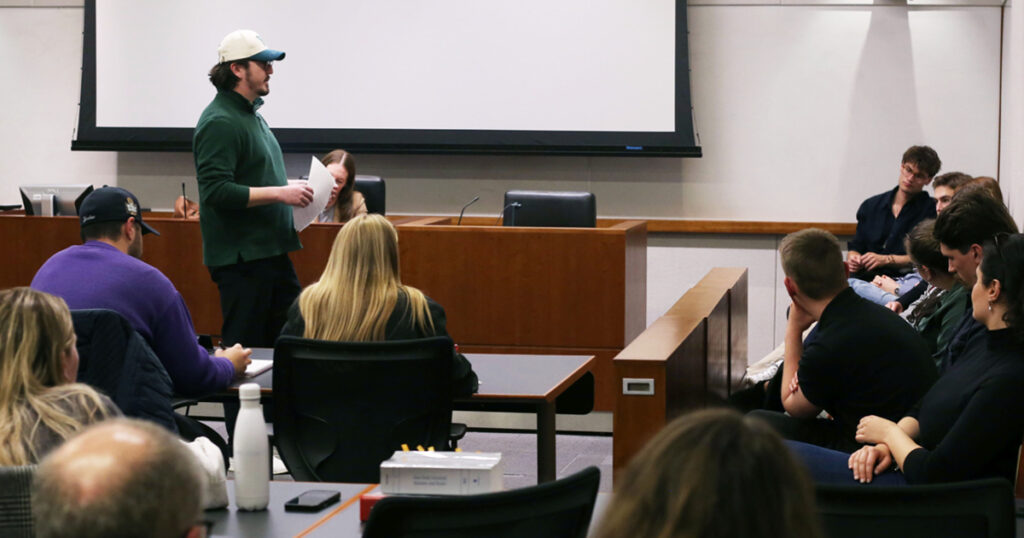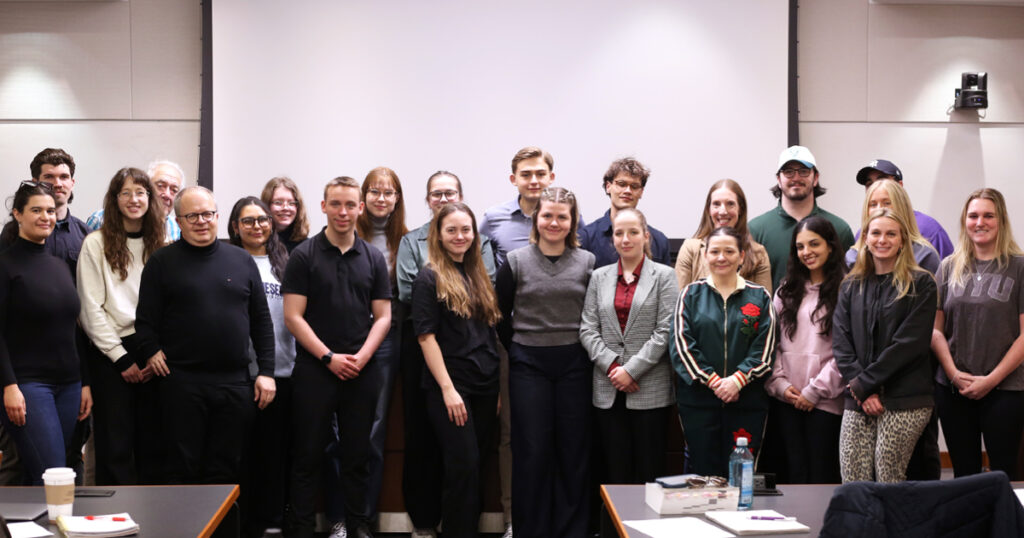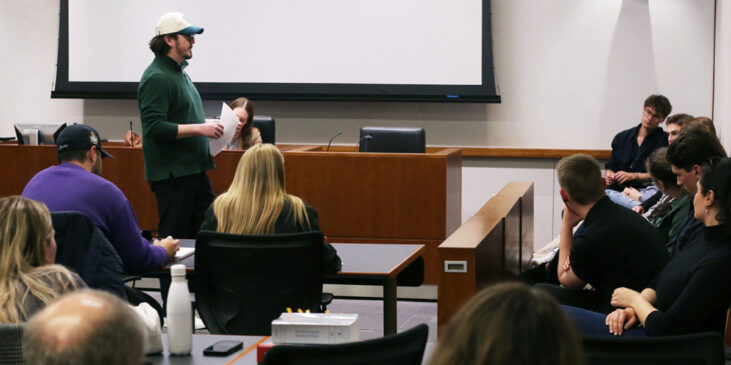
In early April, the New York Law School (NYLS) Criminal Defense Clinic, with Professor Anna Cominsky ’05 and Professor Emeritus Frank Bress, hosted a group of Berlin law student visitors and Professor Dr. Carsten Momsen as part of a continuing exchange between NYLS and the Freie Universistat of Berlin (FUB). The exchange helped us better understand the intricate differences between the American and German criminal legal systems.
On the first day of the visit, fellow Clinic students and I gave a three-hour presentation about the United States criminal legal system. We provided an overview on the U.S. Constitution and the historical context that influences how the criminal legal system is shaped today. We also dove deeply into how New York State handles cases in terms of arrest, arraignment, plea bargaining, speedy trial, trials—if any, convictions, and post-conviction matters, including parole. Our discussions with the visiting students highlighted our ability to take a client-centered approach as we zealously advocate for our clients. It was worthwhile to share not only what we have learned, but also what we do in the Criminal Defense Clinic, which results in positive outcomes for our clients—all within a one-year clinic.
On the second day, we observed court proceedings in New York City Criminal Court in Lower Manhattan. The Berlin students were able to watch how our nuanced and overworked criminal legal system operates. They first saw arraignments—the first court appearance of a person who has been accused of a crime. At arraignments, the accused typically meets with their lawyer for the first time and is interviewed, which includes explaining the charges against them. There are multiple outcomes that may come from arraignments: very few dismissals, bail, plea bargaining, or adjournment of the case. The Berlin students then observed the calendar parts, where a case is adjourned until the case is dismissed, pleaded, or stated ready for trial. Afterwards, we saw a trial with both prosecution and defense questioning their witnesses. The Berlin students shared their perspectives about their court visit with us, which was enlightening. Among other things, they told us that there are no public defenders in Germany, the victim is typically involved in court proceedings from the start, and their criminal proceedings move more slowly than ours. These were just some of the notable differences that distinguish how our legal system works.
Our exchange expanded our understanding of how different our criminal legal systems are from one another. It was amazing to learn Berlin law students’ perspectives on the key distinctions and similarities. The experience provided us context for how reform can be accomplished in the U.S. criminal legal system.

Experiential Learning at New York Law School
Experiential learning is an integral part of the NYLS education. Through our top-tier programs, we offer students the opportunity to turn theory into practice: Starting in their first year, students participate in counseling, interviewing, and negotiating exercises in their foundational Legal Practice course. During their upper-level years, students may select from a wide array of experiential learning courses to hone their lawyering skills. Together with a comprehensive legal education, these experiential offerings prepare our students for careers in advocacy.

